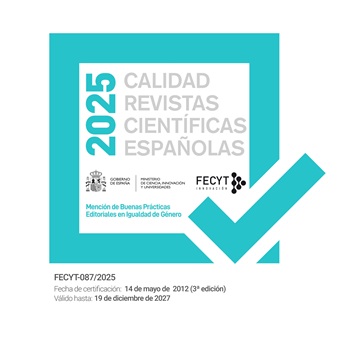THE HUMAN FACTOR IN MANAGING QUALITY SERVICE SYSTEMS. A CHANGE OF ATTITUDE IN THE TOURIST FIRMS
Abstract
Over the last years we observe how closely related the competence growth and the need to improve the quality of the tourist companies are. But the fact that the improving of the quality is not enough to face up to the effects that globalization has in this sector calls the attention. The repercussion of the human factor has been analyzed and investigated in the tourist sector, but it has been verified how later it does not join in the measure systems and quality service improvement. For this reason this investigation raises a review of the models of quality measurement of the service incorporating the employee as a key piece in the development of the services and in the loyalty and satisfaction of the customers. The secondary role that the employee has adopted opposite to the customer eliminates any significant function in terms of the quality management of the service. Therefore, it becomes necessary to create new models of quality management that integrate the employee and then this helps the companies in this sector obtain important and different increases in the quality of the service.Downloads
-
Abstract7382
-
PDF (Español (España))4138
Las obras que se publican en esta revista están sujetas a los siguientes términos:
1. El Servicio de Publicaciones de la Universidad de Murcia (la editorial) conserva los derechos patrimoniales (copyright) de las obras publicadas, y favorece y permite la reutilización de las mismas bajo la licencia de uso indicada en el punto 2.
2. Las obras se publican en la edición electrónica de la revista bajo una licencia Creative Commons Reconocimiento-NoComercial-SinObraDerivada 3.0 España (texto legal). Se pueden copiar, usar, difundir, transmitir y exponer públicamente, siempre que: i) se cite la autoría y la fuente original de su publicación (revista, editorial y URL de la obra); ii) no se usen para fines comerciales; iii) se mencione la existencia y especificaciones de esta licencia de uso.
3. Condiciones de auto-archivo. Se permite y se anima a los autores a difundir electrónicamente las versiones pre-print (versión antes de ser evaluada) y/o post-print (versión evaluada y aceptada para su publicación) de sus obras antes de su publicación, ya que favorece su circulación y difusión más temprana y con ello un posible aumento en su citación y alcance entre la comunidad académica. Color RoMEO: verde.




_.jpg)








